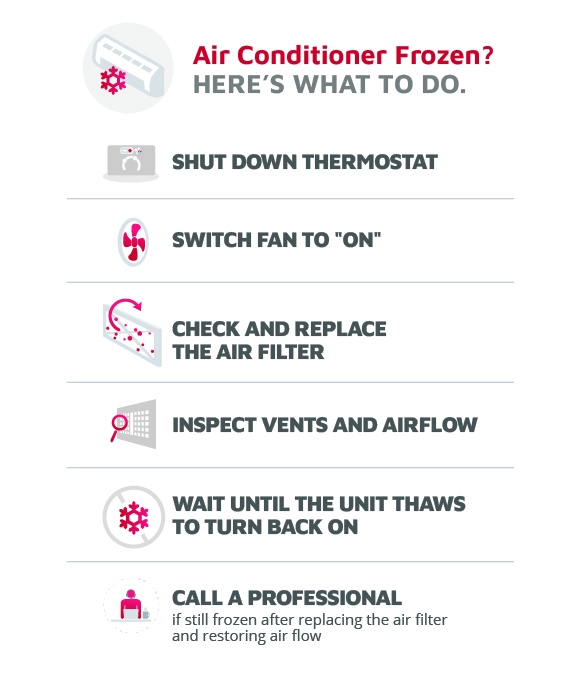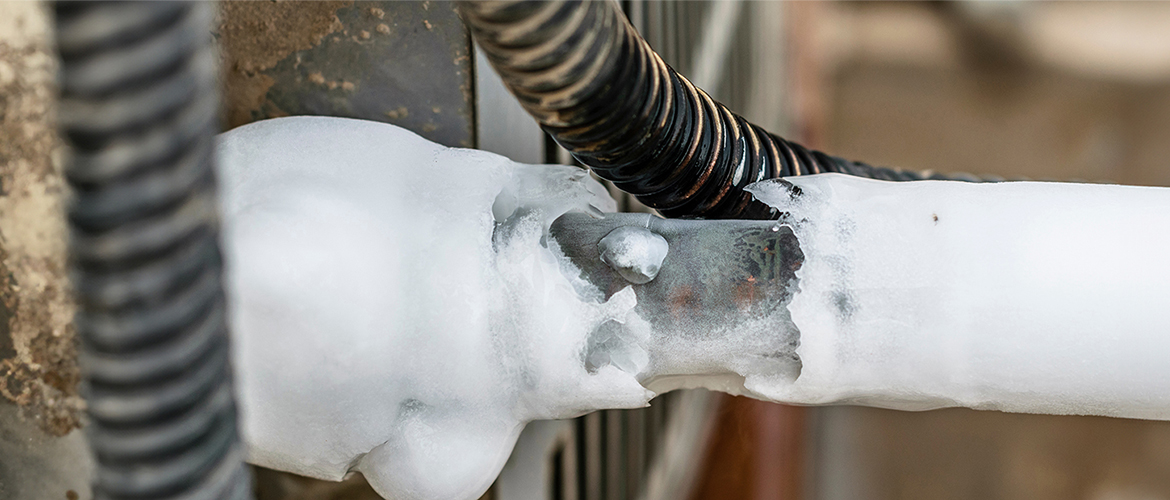Causes, Fixes, and When to Call a Pro
When an AC system begins to freeze up, it’s more than just an inconvenience - it indicates an underlying problem that needs attention to prevent further damage and restore proper cooling. Fortunately, many freeze-ups are preventable or fixable with a little know-how. Let’s discuss why it happens, how to troubleshoot it, and when it’s time to call a professional.
How Air Conditioning Units Operate
Before we dive into the “why,” it helps to understand a bit about how your air conditioner works. Your AC runs on a refrigeration cycle that involves circulating refrigerant through coils inside and outside your home.
Here’s a simple breakdown:
-
- Warm air from inside your home is pulled into the system.
- The refrigerant absorbs heat from the air at the indoor evaporator coil.
- The heat is released outside via the condenser coil, and cool air is sent back into your home.
This process depends on one critical element: airflow. When airflow is reduced or disrupted, the evaporator coil gets too cold. Eventually, humidity in the air condenses on the coil and freezes, leading to ice buildup and a less efficient system.
Common Causes of an AC Freeze-Up
If your AC unit is freezing, one or more of the following may be to blame:
Dirty Air Filters
A clogged or dirty air filter restricts airflow through your system. That reduced airflow makes it harder for warm air to reach the evaporator coil, which causes the coil temperature to drop and eventually freeze. To keep your system running efficiently and avoid freeze-ups, be sure to change your filters regularly.
Low Refrigerant Levels
Refrigerant absorbs heat from your home’s air. When levels are too low, often due to a leak, pressure drops inside the coil which can cause it to get too cold and freeze. This is a serious issue that usually requires a professional to diagnose and repair.
Blocked Ducts or Vents
Just like dirty filters, blocked or closed vents prevent air from moving through the system. This can reduce efficiency and cause the coil to freeze. Make sure all vents are open, clean and unobstructed by furniture, rugs, or curtains.
Thermostat Settings and Outdoor Temps
Running your AC when it’s too cool outside (below 60°F) can actually cause it to freeze up. The system is designed for warmer temperatures, and cold outdoor air can interfere with the pressure and temperature balance.
Signs Your AC Unit Is Freezing Up
Not sure if your system is frozen? Look for these telltale signs:
Visible Ice: Ice may appear on the indoor coil, refrigerant lines, or even the outdoor unit.
Weak or Warm Airflow: If your vents are blowing little or no cool air, freezing may be limiting performance.
Unusual Noises: Gurgling, hissing, or buzzing sounds may indicate ice buildup or refrigerant problems.
Water Leaks: As the system thaws, you might notice pooling water around the unit.
What to Do When Your AC Freezes Up
If your AC is frozen, don’t panic. Here are a few steps you can take right away:
-
- Turn Off the System
Shut off your thermostat completely to stop the freezing process and allow the ice to melt. - Switch the Fan to “On”
Set the fan to run without cooling. This helps thaw the ice faster by circulating warm air through the system. - Check and Replace the Air Filter
If the filter is dirty, replace it. This may help restore airflow and prevent future issues. - Inspect Vents and Airflow
Make sure your supply and return vents are open and not blocked. Clear any obstructions to improve airflow.
- Turn Off the System
When to Call a Professional
While a dirty filter is an easy fix, some freeze-ups are signs of deeper issues like refrigerant leaks, blower motor problems, or a faulty thermostat. If your AC continues to freeze after replacing the filter and restoring airflow, it’s time to call in a certified HVAC technician.
A professional can:
-
- Test refrigerant levels and recharge the system if needed
- Inspect for leaks and make repairs
- Check airflow and mechanical components
- Perform a full system diagnostic
How to Prevent Future Freeze-Ups
The best way to avoid a frozen AC unit? Regular maintenance and a few simple habits:
-
- Change your air filter every 1–3 months, based on manufacturer recommendations (more often if you have pets or allergies)
- Schedule seasonal tune-ups with a Lennox professional to keep your system running efficiently
- Keep vents and ducts clean and clear
- Avoid running your AC when it’s too cold outside
- Change your air filter every 1–3 months, based on manufacturer recommendations (more often if you have pets or allergies)
A frozen air conditioner can be frustrating, but it’s usually a fixable problem if you know what to look for. Whether it’s a dirty filter or a more serious refrigerant issue, addressing the problem early can prevent bigger (and more expensive) repairs down the road. Reach out to your local Lennox dealer to inspect, diagnose and fix the issue so you can get your home back to a comfortable temperature quickly and safely.

